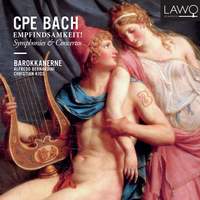I was watching a youtube video which had put a lovely baroque adagio in the background, and I replayed over and over again straining my ears trying to work out who it might be. The main subject of the video of course ceased to have any interest.
I decide that trying to ID the piece was futile and instead started reflecting how special the baroque adagio really is. There are great slow time signatures in any time period, but somehow the baroque adagio has made quite a name for itself. The pace and the style seem to create a an atmosphere of introspection which takes on a character of its own ... somehow beyond the music itself ... if I make any sense at all.
I considered the Largo from Serse (Handel) and the Cum Dederit from the Gloria (Vivaldi) and they seem to grab, drop my mind in a place which I think would not occur if they were in the style of another time period.
OK, so all this commentary is very amateurish. Actually it was a roundabout way of asking, which are your favourite baroque adagio/largos? Which ones "do it" for you?
for you?
I decide that trying to ID the piece was futile and instead started reflecting how special the baroque adagio really is. There are great slow time signatures in any time period, but somehow the baroque adagio has made quite a name for itself. The pace and the style seem to create a an atmosphere of introspection which takes on a character of its own ... somehow beyond the music itself ... if I make any sense at all.
I considered the Largo from Serse (Handel) and the Cum Dederit from the Gloria (Vivaldi) and they seem to grab, drop my mind in a place which I think would not occur if they were in the style of another time period.
OK, so all this commentary is very amateurish. Actually it was a roundabout way of asking, which are your favourite baroque adagio/largos? Which ones "do it"
 for you?
for you?




Comment